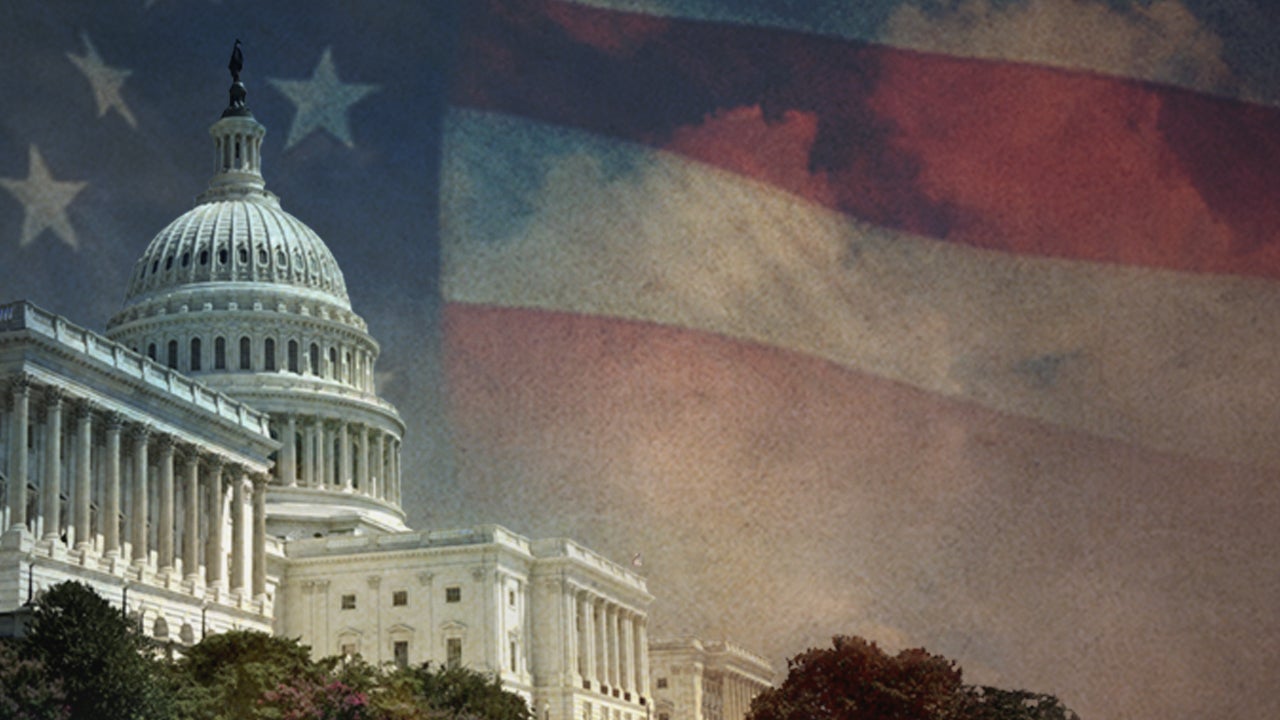
Politics
Public Policy from a Constitutional Viewpoint
12 lessons
11h total length
Create Your Account to Get Instant Access to “Public Policy from a Constitutional Viewpoint”
Discover constitutional solutions to today's most important public policy questions.
Lessons in this course

30:48
lesson 1
The Constitution and the American Political Tradition
Since 1900, combined government spending in the United States—local, state, and federal—has grown from less than eight percent of GDP to nearly forty percent. In addition, the people’s representatives have abdicated their constitutional legislative power to executive agencies, agencies which now exercise all three functions of government. Although these trends indicate America has moved away from the Founders’ understanding of constitutionally limited government, self-government can be restored through a revival of a constitutional understanding of public policy.

30:46
lesson 2
Principles and Public Policy in American Politics
According to the American Founders, the purpose of just government is to secure the natural rights of its citizens, such as the rights to life, liberty, and the pursuit of happiness. By contrast, the consensus among much of today’s political elite is that government exists to provide benefits and favors for designated constituencies. This new view—which underlies much of contemporary American public policy—constitutes a rejection of the Founders’ policy of equal rights for all Americans, and special privileges for none.

35:39
lesson 3
Freedom of Speech and Religion
The First Amendment sets clear limits on government power with regard to speech and religion. While the First Amendment has remained unchanged since its ratification, with the rise of Progressivism, actions taken by all three branches of government have worked to undermine it. As a result, government today is able to exert an ever-growing control over the lives of American citizens.

37:34
lesson 4
Immigration
Americans have debated the issue of immigration since the time of the Founding. Constitutional immigration policy should recognize the responsibility all citizens have to preserve the character of the American regime. Such a policy must be grounded in the Founders’ principle of equality and its accompanying principle of consent.

44:48
lesson 5
Regulation
In direct violation of Article I, Section I of the Constitution, the vast majority of federal rules and regulations that govern Americans are not debated and passed by our elected representatives in Congress. Instead, they are promulgated by various administrative agencies that hold in their hands all three powers of government: legislative, executive, and judicial. The very definition of governmental tyranny, this kind of rule by unelected and unaccountable bureaucrats poses a serious threat to freedom.

31:04
lesson 6
Terrorism and Foreign Policy
The foundational principle of American foreign policy is stated in the Declaration of Independence: “Enemies in War, in Peace, Friends.” Foreign policy at the time of the Founding sought to implement this principle. The Founders’ policy offers guidance for dealing with Islamic terrorists and other adversaries of the American regime today.

28:25
lesson 7
Health Care
Since the 1940s, the American health care industry has become increasingly regulated and bureaucratized. Overregulation has driven a wedge between patients and health care providers and caused a substantial reduction in consumer choice. Restoring market-based health care requires instituting proper incentives and removing the regulatory barriers that stand in the way of a consumer-driven system.

33:33
lesson 8
Race and Affirmative Action
Neither the subject of race nor the word slavery is mentioned in the U.S. Constitution. The Founding generation believed that slavery was a necessary evil that would eventually be abolished. However, due to various reasons, slavery only became more deeply entrenched, and the Civil War was fought to decide the matter. In response to injustices of the past, 20th-century politicians devised an affirmative action system that aimed to guarantee equal outcomes at the expense of equal rights for all.

35:17
lesson 9
The Environment
The modern consensus on the environment is that public policy should not favor human life over non-human life. This extreme view stands in opposition to the Founders’ view, which was centered on the protection of the natural human rights to life, liberty, and property. It also stands partly in opposition to the Progressive view, which holds that—while non-human life is important and worth protecting, in the form of national parks for example—the ultimate purpose of the environmental bureaucracy must be to protect human life.

29:53
lesson 10
Taxes
The current U.S. tax code is over one million words in length, and it changes almost daily—over 5,000 times from 2001 to 2010. Because it is so voluminous and mutable, it places a large economic burden on American citizens. It also encourages crony capitalism, which is a threat to free enterprise and to a free society.

38:17
lesson 11
Marriage and Family
The American Founders viewed marriage—which they held to be one of the cornerstones of civil society—as a contract that conferred rights and responsibilities on both parties. Beginning in the 19th century, this understanding of marriage was rejected, first for the Romantic idea of marriage as a status. This change prepared the way for the Progressives, who thought marriage should be managed scientifically by state administrators.

35:47
lesson 12
Education
Article III of the Northwest Ordinance of 1787 states that “schools and the means of education shall ever be encouraged,” but it left the specifics of education policy to local governments. By contrast, the modern administrative state seeks to centralize education policy and to force its edicts on every school in the nation. A restoration of the Founders’ understanding will require a return to their view of the purpose of education—and to the means they employed to attain it.
Enroll in "Public Policy from a Constitutional Viewpoint" by clicking the button below.
What Current Students Are Saying
Takes the student through the full context of the course subject matter. Wonderful insight into how we strayed and its consequences and offers a solution.
Create your FREE account today!
All you need to access our courses and start learning today is your email address.